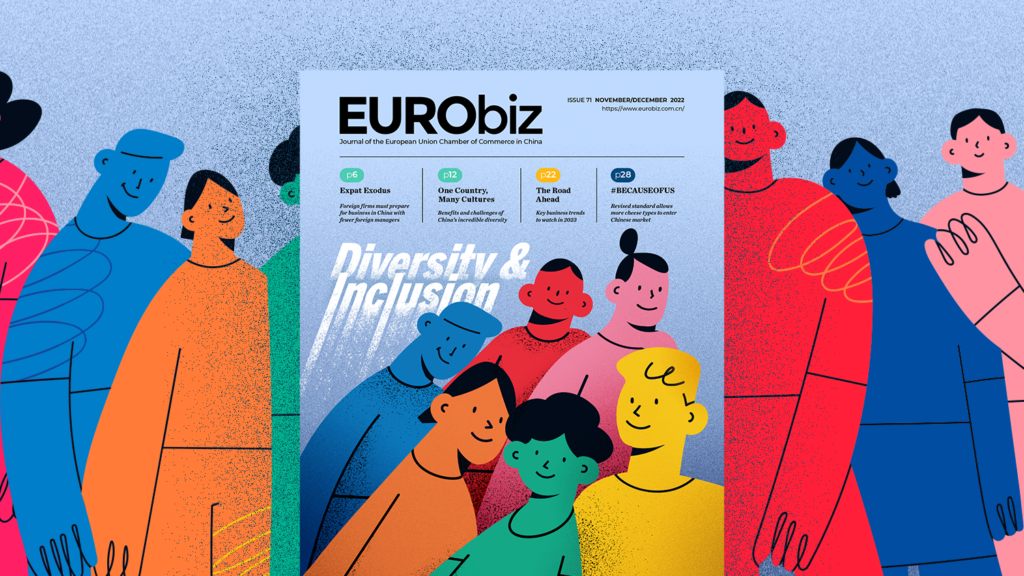
At a time when economic headwinds create mounting challenges for both Chinese and global markets, businesses increasingly need to rely on their teams’ creativity for innovative solutions to testing obstacles. Companies that build their teams on the foundations of diversity and inclusion create an advantage for themselves in this regard, as people from different groups—be it age, nationality or sex—offer a broader scope of perspectives when looking at a problem. An emphasis on inclusion also helps individuals overcome their own biases and approach challenges creatively, as it cultivates an environment where thinking ‘outside the box’ and offering different views are encouraged and valued.

When developing foundations for diversity and inclusion in China, companies need to have a thorough understanding of cultural differences that often result in divergent thinking styles and management attitudes. For instance, Chinese business leaders are likely to view their companies through the lens of a cultural background that puts the family structure at its centre. This way of thinking can lead to stronger team cohesion, but often also results in higher work demands and pressure.[1] When it comes to modes of thinking, psychological studies found that Westerners tend to focus on individual details and group them into abstract categories, while Easterners focus more on relationships and context.[2]
If managers can form their approaches informed by multiple modes of thinking, they will have an advantage when analysing problems and identifying optimal models for a solution. They will also be able to understand the cultural biases that might influence decisions and thereby course-correct whenever such attitudes get in the way of inclusion.
While an inclusive work environment is conducive for productivity, at many companies, inclusion is often still restricted to the top management level.[3] This puts companies at risk of missing out on the many benefits inclusion can offer, such as higher levels of engagement, commitment and collaboration, which are all key factors of better overall performance.
Business leaders in China can take an important step towards inclusion by shifting their focus from personal trust to professional trust. While the former is often rooted in a sense of belonging to a shared group, the latter is gained purely on merit. When a company puts efforts into nurturing a culture of inclusion, it offers a wider scope of opportunities for each member of its workforce to earn professional trust, as different ideas would not be suppressed or discarded without due consideration.
The European Chamber believes that European companies are well-placed to
play an important role in the promotion of diversity and inclusion in China, as
they can share their best practices to benefit all companies that are ready to
take concrete steps towards creating an inclusive workplace.
[1] Hout, T. & Michael, D., A Chinese Approach to Management, Harvard Business Review, September 2012, viewed 3rd November 2022, <https://hbr.org/2014/09/a-chinese-approach-to-management>
[2] Chiu, Liang-hwang, December 1972, A cross-cultural comparison of cognitive styles in Chinese and American children, International Journal of Psychology, vol.7, no.4, pp. 235–242, viewed 3rd November 2022, paid subscription service; Nisbett, R. E. The Geography of Thought. Free Press, New York, 2003.
[3] Transforming enterprises through diversity and inclusion, International Labour Organization, 2022, viewed 3rd November 2022, p. 15, <https://www.ilo.org/wcmsp5/groups/public/—ed_dialogue/—act_emp/documents/publication/wcms_841348.pdf>


Recent Comments